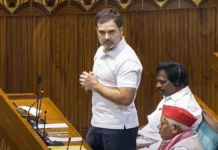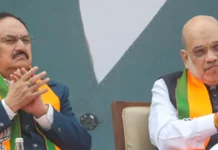 NEW DELHI: Pakistani national Mohammad Hussain, who was awarded death sentence in a 1997 Delhi blast case in which four people had died, will have to face trial again with the Supreme Court today directing re-trial after setting aside his conviction and capital punishment.
NEW DELHI: Pakistani national Mohammad Hussain, who was awarded death sentence in a 1997 Delhi blast case in which four people had died, will have to face trial again with the Supreme Court today directing re-trial after setting aside his conviction and capital punishment.
A three-judge bench headed by Justice R M Lodha gave this order on the ground that he was not given full opportunity to defend himself in the lower court.
The apex court passed the order after a division bench earlier had given a split verdict on his appeal with one judge directing a fresh (de nova) trial and the other holding the trial as “illegal” and ordering Hussain’s deportation to Pakistan.
Mohammad Hussain was convicted and sentenced to death in November 2004 by the trial court for his role in a 1997 Delhi blast case which had occurred in a blue line bus leaving four persons dead and 24 others injured.
The trial court had termed the case as “the rarest of rare” one and had awarded death sentence to Hussain, a native of Jindrakhar village at Okara in Pakistan.
The high court had in August 2006 upheld his conviction and the death sentence which was challenged by the Hussain before the apex court. In its January 11 split verdict, the two-judge bench of the apex court while differing on the action to be taken in Hussain’s case, had, however, agreed that the fundamental principles of law and the Constitution were overlooked by both the trial court and the Delhi High Court in award of the capital punishment.
The bench had said Hussain’s conviction and sentence was fit to be set aside as he was not given the assistance of a lawyer to defend himself during the trial.
The apex court had said while prompt disposition of criminal cases is encouraged, but in order to reach a result the accused should not be “stripped of his valuable right of a fair and impartial trial”.
It had also said the right to be heard in criminal trial would be inconsequential and of no avail if it does not include the right to be heard through counsel.
The two-judge bench had said the two courts ought to have seen that the accused was dealt with justly and fairly, keeping in view the cardinal principles that the accused of a crime is entitled to a counsel which may be necessary for his defense.-PTI





